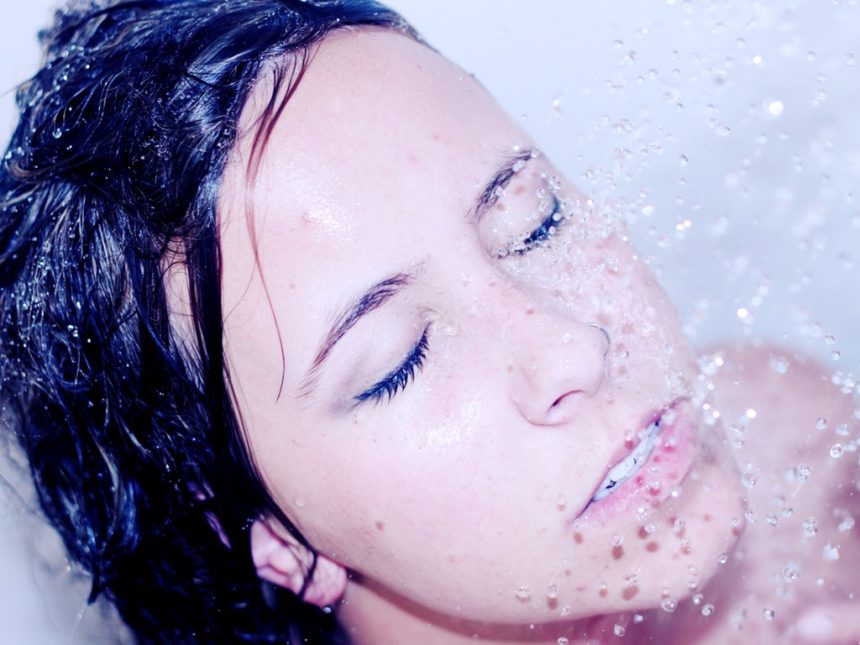HOW IMPORTANT IS HYDRATION FOR SKIN?
Given that our bodies are comprised of approximately 60% water, it comes with no surprise that water is one of the vital energy sources for our body. There’s no doubt that water is important for our survival. Our bodies’ cellular and biochemical processes require water to function properly. It is known that our organs hold different amounts of water, for example blood, which carries oxygen and nutrients all over the body is approximately ninety-two percent water, while the kidneys are seventy-nine percent water and bones are thirty-one percent water. Water works differently in various organs even acting as a carrier of nutrients, a structural support, a medium for eliminating toxins as well as a thermal regulator.
For overall good health drinking an adequate amount of water everyday is important as water aids in digestion, absorption, circulation and even excretion. But does drinking large amounts of water benefit our skin’s health? People seem to be divided on whether drinking water gives you a healthy, younger and radiant looking complexion or it has no effect on skin’s appearance whatsoever. Skin is an organ and just like any other part of our body, our skin is made up of cells and these skin cells, like any other cell in the body, are made up of water without which the organs will certainly not function properly or at their best.
If our skin is not getting the sufficient amount of water, the lack of hydration will have bad effect by turning our skin dry, tight and flaky. Dry skin can even exaggerate the appearance of fine lines and wrinkles due to shrinkage of skin cells. Dry skin has less resilience and is prone to
wrinkling badly. People with dry, aging skin often do not consume enough water to keep the skin healthy and soft. One of the most important things we can do for our skin’s health and appearance is to stay hydrated by applying moisture to our skin. Our skin is made up of three layers: the outer layer called epidermis, the underlying skin called dermis and the subcutaneous tissue. When the outermost layer of our skin doesn’t contain enough moisture, the skin will start losing its elasticity and start feeling rough.
Staying hydrated will rejuvenate our skin so it starts to look and feel smooth and soft as the outermost layer of the skin has the moisture it needs to flush away any kind of toxins and carry nutrients to the skin’s cells. Skin that is well-hydrated also is less sensitive to various irritants and germs that can slip through the lipid barrier when the skin lacks moisture.
The importance of hydration
Our skin needs proper hydration just as any part of our body because our skin is an organ (the largest in our body) that requires adequate hydration to perform at its very best. Thus, keeping our skin properly hydrated can help in the following ways :
1) Improve the quality of our skin – It comes with no surprise that a lack of hydration can make our skin look dry, flaky, and tight. Not only does keeping skin moisturized help it appear more plump and supple, but also helps it any address surface dullness by combating the
buildup of dead skin cells.
2) Reduce oil and acne – While it may seem counter-intuitive at first but dehydrated skin often sends signals to the glands to produce even
more oil as a self defense mechanism of sorts. By keeping our skin well hydrated it becomes less oily and acne tends to be less aggravated.
3) Slowing down signs of aging – Not every aspect of the aging process can be tamed but at least hydration can slow down the visible signs of premature aging. Staying well hydrated can help maintain our skin’s elasticity to combat the appearance of those dreaded wrinkles.
4) Reduce our skin of toxins – When we properly hydrate our skin it takes on a more radiant-looking glow. Unfortunately the same can’t be said for skin that’s lacks hydration. That’s because our skin can’t rid of toxins by itself without adequate hydration which results in irritation and inflammation.
In addition to drinking plenty of water between 6 and 8 glasses daily we should apply a moisturizer to our skin a few minutes after showering or bathing which will help our skin absorb lost moisture while our pores are still open. Also consuming foods rich in essential fatty acids like salmon, olive oil, walnuts and pumpkin seeds can help keep our skin healthy and improve our skin’s hydration levels. Nothing happens overnight but by regularly doing this we can see great improvements overtime. Therefore, the facts are clear – hydration can help in a long, long way for the health and appearance of our skin.



Leave a Reply